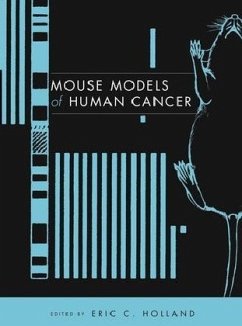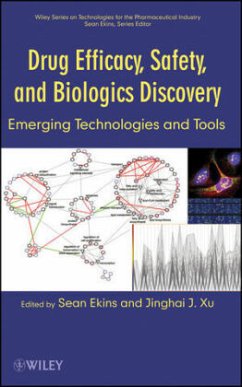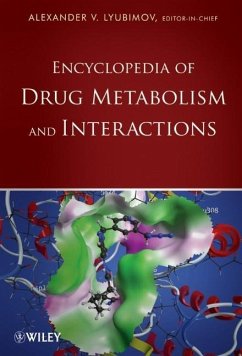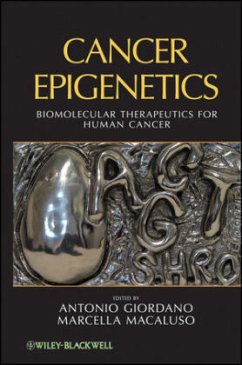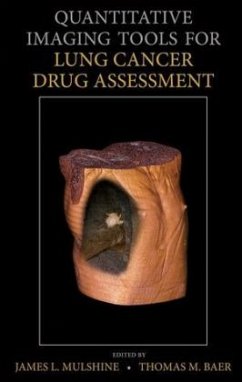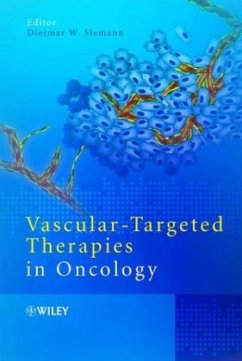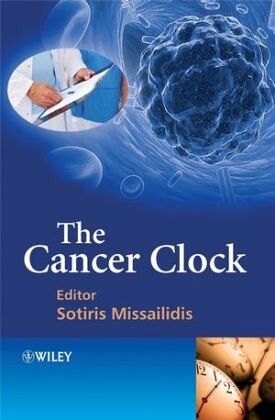
The Cancer Clock
Versandkostenfrei!
Versandfertig in über 4 Wochen
72,99 €
inkl. MwSt.

PAYBACK Punkte
36 °P sammeln!
Edited by the winner of the 2008 Mike Price Fellowship The Cancer Clock is a comprehensive overview of cancer as a single topic and provides an all encompassing account of the key aspects related to the disease from its causes and initial diagnosis through to treatment and care and the different support mechanisms available.
The Cancer Clock is a comprehensive overview of cancer as a single topic and provides an all-encompassing account of the key aspects related to the disease from its causes and initial diagnosis through to treatment and care and the different support mechanisms available. Carefully divided into three key parts, the first part of the book focuses on the genesis of the disease through environmental, lifestyle and socioeconomic factors. The second part moves on to consider early disease, disease development, diagnosis, monitoring and imaging of the disease. The book then discusses standard treatments such as surgery, chemotherapy, radiotherapy and immunotherapy along with current developments in the field such as targeted therapeutics, antibody therapies and novel chemotherapy agents. The book closes with a discussion of patient care, pain control, nursing in cancer patients and rehabilitation processes and a final chapter that looks at the psychological and psychosocial aspects of the disease, from coping with the knowledge of having cancer to coping with the side effects of the treatments, family support and dedicated support groups.
Written in a clear, accessible manner this book is an ideal starting point for students of pharmacy, pharmacology, the biomedical sciences and other related disciplines where an understanding of cancer as a whole is required.
_ takes an interdisciplinary approach covering the chemistry, epidemiology, basic biology and genetics, radiology, medical physics, medicine, nursing, health and social welfare all associated with cancer diagnosis, treatment and care.
_ explains the various causes of cancer and suggests actions for the prevention of the disease.
_ includes chapters on current diagnostic tests, drug development and the techniques used in drug design both chemical and biological.
_ considers current experimental therapeutic and diagnostic approaches and their potential for future therapeutic development.
_ examines aspects of cancer care, physiotherapy, rehabilitation and the psychological aspects of the disease
_ includes self assessment questions/answers, summary sections and review questions and information boxes to enhance student understanding.
Written in a clear, accessible manner this book is an ideal starting point for students of pharmacy, pharmacology, the biomedical sciences and other related disciplines where an understanding of cancer as a whole is required.
_ takes an interdisciplinary approach covering the chemistry, epidemiology, basic biology and genetics, radiology, medical physics, medicine, nursing, health and social welfare all associated with cancer diagnosis, treatment and care.
_ explains the various causes of cancer and suggests actions for the prevention of the disease.
_ includes chapters on current diagnostic tests, drug development and the techniques used in drug design both chemical and biological.
_ considers current experimental therapeutic and diagnostic approaches and their potential for future therapeutic development.
_ examines aspects of cancer care, physiotherapy, rehabilitation and the psychological aspects of the disease
_ includes self assessment questions/answers, summary sections and review questions and information boxes to enhance student understanding.




